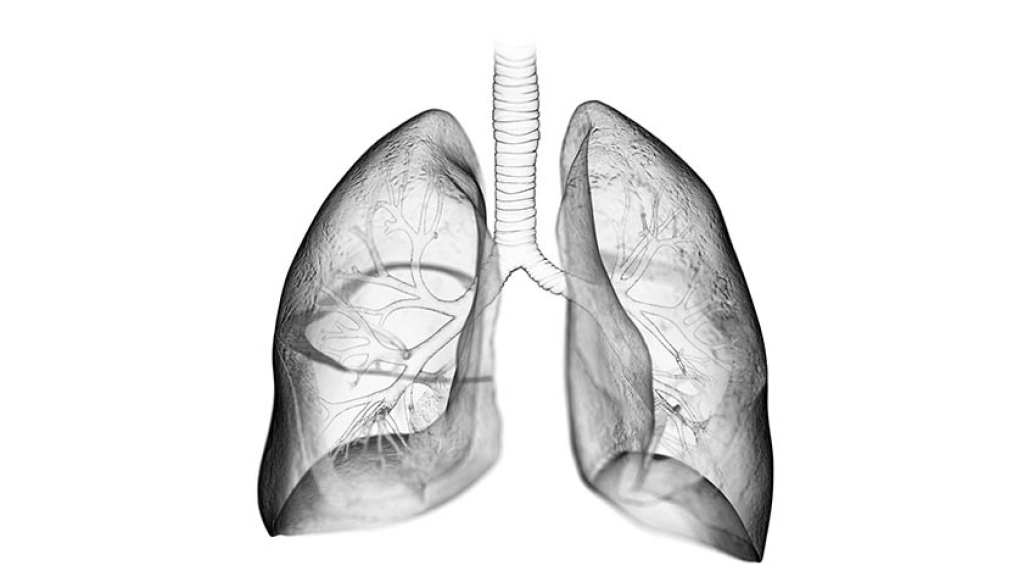Osteopontin is discovered as the culprit behind these patients’ main cause of death. However, a repurposed immunosuppressive drug may combat the pro-inflammatory protein.
1:51 PM
Author |

Systemic sclerosis is an autoimmune disease associated with inflammation and fibrosis, or scarring, that affects organs including the skin, heart, kidney and lungs.
This form of scleroderma, this tightening and thickening of the skin, is a progressive, orphan illness that affects approximately 80,000 Americans and has no clear pathogenesis or FDA approved treatment option, leaving a proportion of patients affected to develop scarring so severe that they need organ transplants.
Lung fibrosis is the major cause of mortality in systemic sclerosis patients, with its prevalence on the rise and no way to stabilize or reverse the damage, according to Dinesh Khanna, M.B.B.S, M.S.c, director of Michigan Medicine's Scleroderma Program.
"This is why I set out to identify biomarkers that help identify patients at higher risk of this progressive disease. A discovery is vital for successful clinical development of a novel treatment," he says.
Khanna forged a collaboration with Thiru Ramalingam, M.B.B.S, Ph.D., a scientist at Genentech with expertise in biomarkers related to fibrosis. Together, using Khanna's clinical expertise and rich database at the University of Michigan and Ramalingam's lab, the pair investigated the potential link between autoantibodies, myeloid cell activation and lung fibrosis progression in patients with systemic sclerosis and associated lung disease (Ssc-ILD), discovering these individual factors do cooperate together to promote and progress lung fibrosis.
MORE FROM THE LAB: Subscribe to our weekly newsletter
The research, published in Cell Reports Medicine, found a protein, osteopontin, may be responsible for triggering lung scarring. The finding was made by assessing three cohorts of systemic sclerosis patients and their immune systems.
"Scleroderma is an autoimmune disease, which means the immune system is chronically triggered by the body," Khanna explains. "The immune system thinks there's a microbe coming from outside of the body, and attacks proteins called autoantigens, which is common in those with autoimmune diseases. This interaction creates an immune complex."
These immune complexes are activators of macrophages, cells of the immune system tasked with fighting off the "intruder".
"When the macrophage is activated by immune complexes, we discovered that it secretes an abundance of a protein called osteopontin—previously implicated in fibrosis," Ramalingam says. "High levels of this protein were confirmed by creating an in vitro culture, meaning outside the body, to emulate the immune complex immobilized in a SSc-ILD patient's lung tissue."
Osteopontin levels at a given time were prognostic for future deterioration of lung function, according to the study.
We've accepted the challenge of trying to help patients the best we can, by continuing a search for a treatment or cure.Dinesh Khanna, M.B.B.S., M.Sc.
Khanna and Ramalingam's research also highlighted how the amount of osteopontin circulating in the SSc-ILD patients was amplified by certain cells, including autocrine monocyte colony stimulating factor and interleukin-6, a protein that helps regulate the immune system.
Targeting interleukin-6 to decrease osteopontin levels
This research compliments another one of Khanna's recent studies published in The Lancet Respiratory Medicine, which features the potential of tocilizumab, an anti-interleukin-6 receptor and immunosuppressive drug often used to treat rheumatoid arthritis, as a target to decrease osteopontin levels in patients with systemic sclerosis.
Spanning 20 countries and 75 sites, the randomized, double-blind, placebo-controlled Phase 3 trial found that tocilizumab led to a decrease in osteopontin, confirming the connection between this pro-inflammatory protein and interleukin-6, according to the study.
Like Podcasts? Add the Michigan Medicine News Break on iTunes or anywhere you listen to podcasts.
The 162 mg of tocilizumab or placebo was delivered via injection weekly for 48 weeks.
"Collectively, these data suggest a plausible link between autoantibodies and lung fibrosis progression. Osteopontin has potential to be a promising biomarker and potential target for future therapies for those with SSc-ILD," Khanna says. "If you asked our team what one disease we wish we had a treatment for, we'd say scleroderma. This answer has stayed consistent over the last 15 years, too. You watch patients die a slow death, and it's devastating. We've accepted the challenge of trying to help patients the best we can, by continuing a search for a treatment or cure."
Disclosure: Khanna is a consultant to Actelion, Acceleron, Arena, Bayer, Boehringer Ingelheim, Bristol-Myer Squibb, CSL Behring, Corbus, Cytori, GSK, Genentech/Roche, Galapagos, Merck, Mitsubishi Tanabi, and UCB. He has received grants as part of these investigator-initiated trials (to the University of Michigan) from Bayer, Bristol-Myer Squibb, Pfizer and F Hoffmann-La Roche Ltd., and has stock options in Eicos Sciences, Inc.
Papers Cited: "Osteopontin Links Myeloid Activation and Disease Progression in Systemic Sclerosis," Cell Reports Medicine. DOI: 10.1016/j.xcrm.2020.100140
"Tocilizumab in systemic sclerosis: a randomized, double-blind, placebo-controlled, phase 3 trial," The Lancet Respiratory Medicine. DOI: 10.1016/S2213-2600(20)30318-0

Explore a variety of healthcare news & stories by visiting the Health Lab home page for more articles.

Department of Communication at Michigan Medicine
Want top health & research news weekly? Sign up for Health Lab’s newsletters today!





